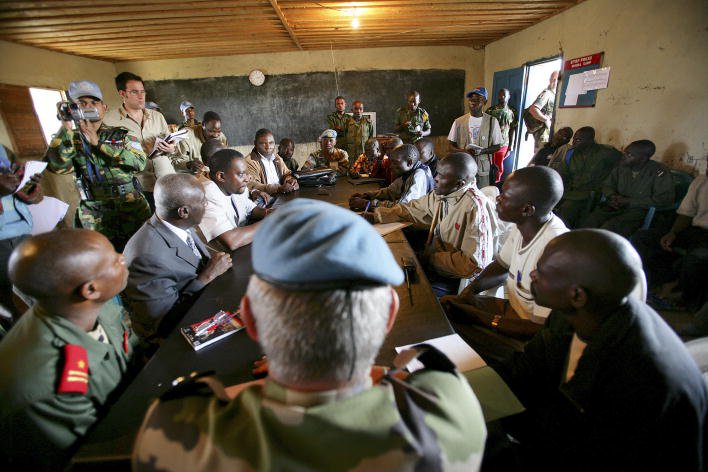Key messages
- Millions around the globe are affected by the actions of non-state armed groups (NSAGs). Like states, NSAGs are bound by international humanitarian law (IHL) and are addressed by other non-binding normative standards aimed at mitigating the harmful effects of armed conflict. Although a consensus is emerging on the importance of engaging NSAGs on these rules, they have not been included as participants in the processes that lead to rule development.
- NSAGs' participation in such normative processes is important for two main reasons, despite concerns of ‘legitimisation’. First, a self-regulatory compliance system such as IHL can only be fit for purpose if it is based on an understanding of the perspectives of the actors it regulates and the realities they face. Second, decades of experience and some evidence underscore that a sense of ownership of norms can be an important factor in securing NSAGs’ compliance.
- This Brief proposes a strategic model aimed at the progressive inclusion of NSAGs in humanitarian norm development processes. At the very least, processes should consult NSAGs. Outcome documents, where appropriate, should not just address ‘states’, but ‘parties to the conflict’ (or similar) so that they can be endorsed by NSAGs. The model addresses potential sources of state opposition or apprehension and encourages the international community to find new ways of approaching these tensions and dilemmas.
Correspondence about this article should be addressed to Ashley Jackson ([email protected]), Co-Director of the Centre for the Study of Armed Groups.
Ezequiel Heffes and Jonathan Somer

